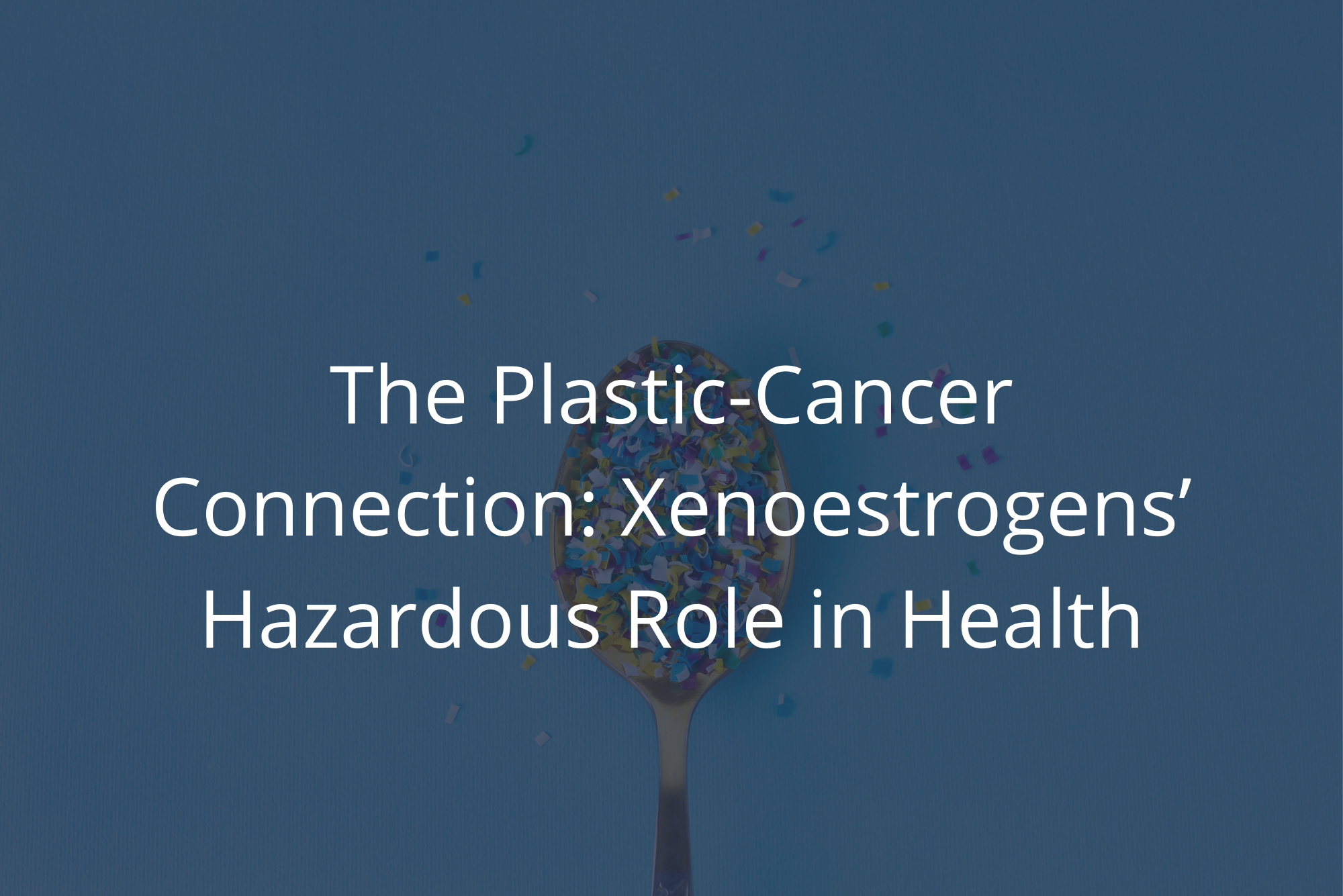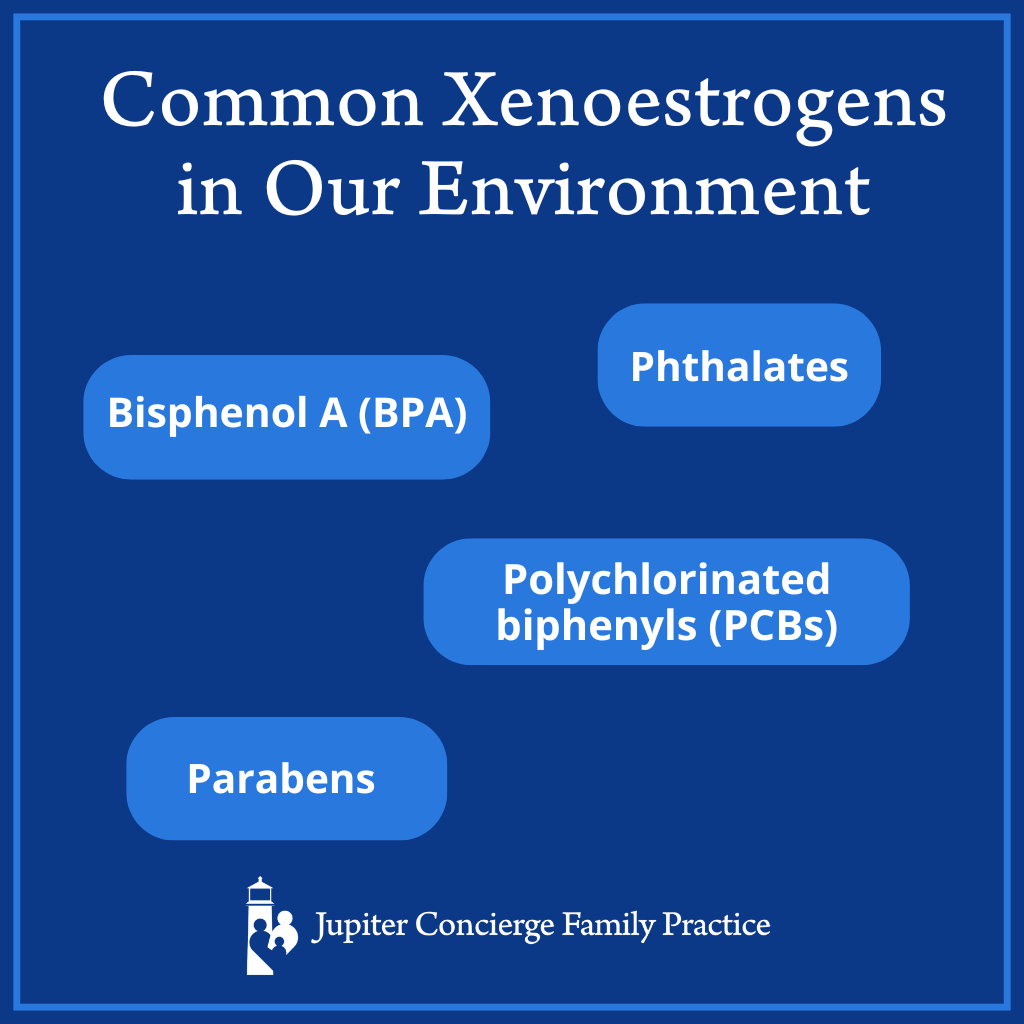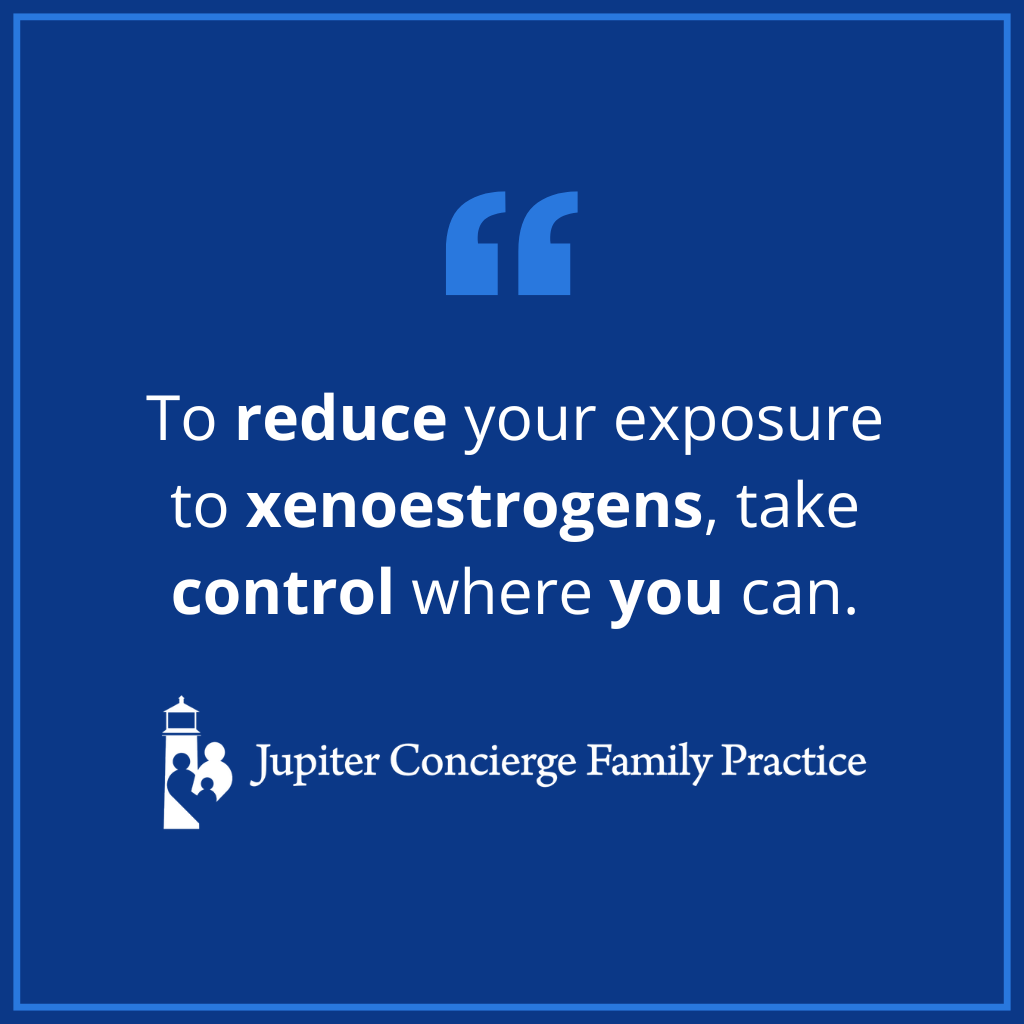
Take a moment to look around you right now. How much plastic do you see?
My guess is you’ll find quite a few items without looking very hard.
If you’re in an office, you might see a pen, printer, computer, keyboard, and trashcan. Or if you’re in the kitchen, the yogurt containers, produce bags, refrigerator drawers and racks, food containers that you pop into the microwave, water bottles, juice bottles, milk bottles… the list goes on and on and on.
So what’s the problem, and why are we talking about this here?
As a physician, I’m concerned about the widespread use of any substance that causes meaningful harm to the human body. And, unfortunately, more and more evidence shows that modern plastics — those useful, ubiquitous substances — fall into this category.
Let’s talk about why, which substances are harmful, and what you can do about it.
Plastics: A Toxic Love Affair
The short-term convenience of plastics is undeniable. Plastics are cheaper to manufacture than glass and metals, and in many cases, they’re single-use. As a result, plastics are the darling of manufacturing — and they are everywhere.
Literally everywhere, including inside our bodies. You’ve probably heard about the environmental harm plastics cause, but you may not have heard about the extent to which they play a role in modern-day health concerns.
Plastics aren’t as stable as glass or stainless steel. So while they work well to hold leftovers and grocery store products without making a mess, the microscopic reality isn’t quite so clean.
Plastic containers leach chemicals into and contaminate the products they contain. If that product is a food item — fast food, snack food, store-bought canned food, bottled water — then when you consume the food, you ingest those plastic components, too.
Plastics also lose tiny bits of themselves, called microplastics, into our bodies. These little invaders are miniature versions of their sources, meaning they contain chemicals they continue to release once they’re in your system.
Some of those chemicals are the hormone-disrupting troublemakers known as xenoestrogens. Let’s take a look.
Xenoestrogens: An Unnatural Ingredient
Xenoestrogens are estrogen-like compounds found in plastics, even BPA-free versions. (The prefix xeno means guest, foreign, or not coming from the host.)
Xenoestrogens differ from naturally occurring estrogens, but they bind to human estrogen receptors nonetheless and can cause any number of problems. Because both men and women have estrogen and estrogen receptors, though in differing amounts, this issue can affect all people.

While not an exhaustive list, the following are common xenoestrogens you may recognize, as described by the National Institutes of Health (NIH):
- Bisphenol A (BPA) — used to stiffen plastic into a shape; found in plastic food containers, utensils, dental sealants, protective coatings, flame retardants, and water supply pipes.
- Parabens — used as preservatives in items like beer, sauces, sodas, and toiletries/cosmetics.
- Phthalates — found in soft plastics used as packaging materials, automotive interiors, detergents, cleaners, toiletries, and cosmetics.
- Polychlorinated biphenyls (PCBs) — used as flame retardants; found in electrical equipment, construction materials, coatings, textiles, and furniture padding.
Human Health Hazards of Plastics
Many health issues connect directly to the physiological disruption caused by the xenoestrogens found in plastics that are, in turn, found in our bodies.
The growing concern over microplastic contamination has led to greater testing to determine whether these particles truly do lodge and remain in the human body. To date, various investigations have discovered microplastics in human lungs, livers, kidneys, hearts, and bloodstreams. They’ve also been discovered in placentas and breast milk, and a study in mice suggests they’re likely in our brains, too.
Similarly, organizations like the International Union for Conservation of Nature warn that xenoestrogens leached in tap water may cause a variety of human health disorders, including developmental, reproductive, neurological, and immune problems.
Here are just a few examples:
- Cancer. Xenoestrogens can cause abnormal cell growth, also known as tumors. Sometimes these tumors can be cancerous.
- Liver function decline. Because xenoestrogens need to be processed through the liver, our livers can undergo damage and mutations that negatively affect liver function.
- Breathing problems. Microplastics in the lungs can trigger an immune response that creates non-cancerous tumors, blocking lung function.
- Infertility. Both the male and female reproductive systems are significantly troubled by xenoestrogens. In fact, in a 2021 PBS interview, reproductive epidemiologist and medical school professor Shanna Awan had this to say about the effect of plastics on human reproduction: “Young women today at 25 are less fertile than their grandmothers were when they were 45. And we see that with men as well. Their sperm counts are below what their grandfathers’ were.”
How to Avoid Xenoestrogens
Despite their apparent significant harm — to humans and to all living organisms — plastics are a daily, unavoidable part of modernity. So what can you do to protect your health?
To reduce your exposure to xenoestrogens, take control where you can. Use glass and stainless steel containers for food storage and heating. Whenever you can’t avoid plastic, elect for BPA-, phthalate-, and paraben-free products. Cut down on your exposure to leached food and drink by eating whole foods at home, eating at restaurants that use high-quality, fresh ingredients, and avoiding plastic or plastic-lined water containers.
Consider urging lawmakers to address the issue of plastic pollution and its health impacts. Policymakers need to make changes for individual health, community health, and environmental health — all of which are connected. For the health of all, the way we produce plastics needs to change.


Dr. David Rosenberg
Dr. Rosenberg is a board-certified Family Physician. He received his medical degree from the University of Miami in 1988 and completed his residency in Family Medicine at The Washington Hospital in Washington, Pennsylvania in 1991. After practicing Emergency Medicine at Palm Beach Gardens Medical Center for two years, he started private practice in Jupiter, in 1993. He is an avid baseball fan and Beatles fanatic, since he was 8 years old. He has been married to his wife, Mary, since 1985 and has three grown children.
David completed additional studies at Mercer University, Macon, Georgia and obtained a BS in Chemistry in 1983.
“My interests include tennis, snow skiing, Pilates and self-development.”
